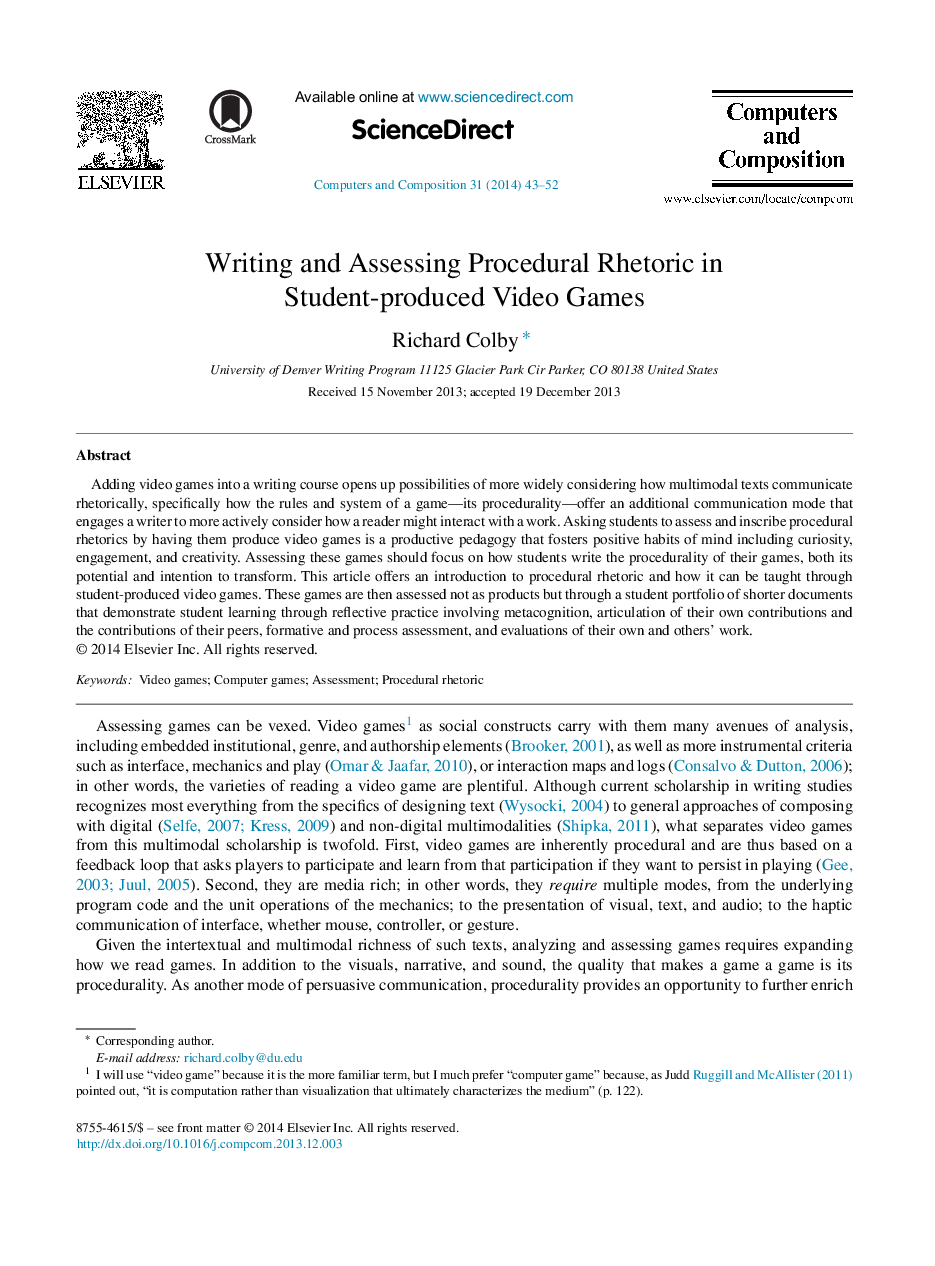| Article ID | Journal | Published Year | Pages | File Type |
|---|---|---|---|---|
| 347911 | Computers and Composition | 2014 | 10 Pages |
•Video games manifest the rhetorical mode of procedurality.•Using video games in a writing course allows students to write procedural rhetorics.•Reflecting on rhetorical choices in games fosters positive habits of mind.•Assessing reflective practice is an effective strategy for student-produced games.
Adding video games into a writing course opens up possibilities of more widely considering how multimodal texts communicate rhetorically, specifically how the rules and system of a game—its procedurality—offer an additional communication mode that engages a writer to more actively consider how a reader might interact with a work. Asking students to assess and inscribe procedural rhetorics by having them produce video games is a productive pedagogy that fosters positive habits of mind including curiosity, engagement, and creativity. Assessing these games should focus on how students write the procedurality of their games, both its potential and intention to transform. This article offers an introduction to procedural rhetoric and how it can be taught through student-produced video games. These games are then assessed not as products but through a student portfolio of shorter documents that demonstrate student learning through reflective practice involving metacognition, articulation of their own contributions and the contributions of their peers, formative and process assessment, and evaluations of their own and others’ work.
